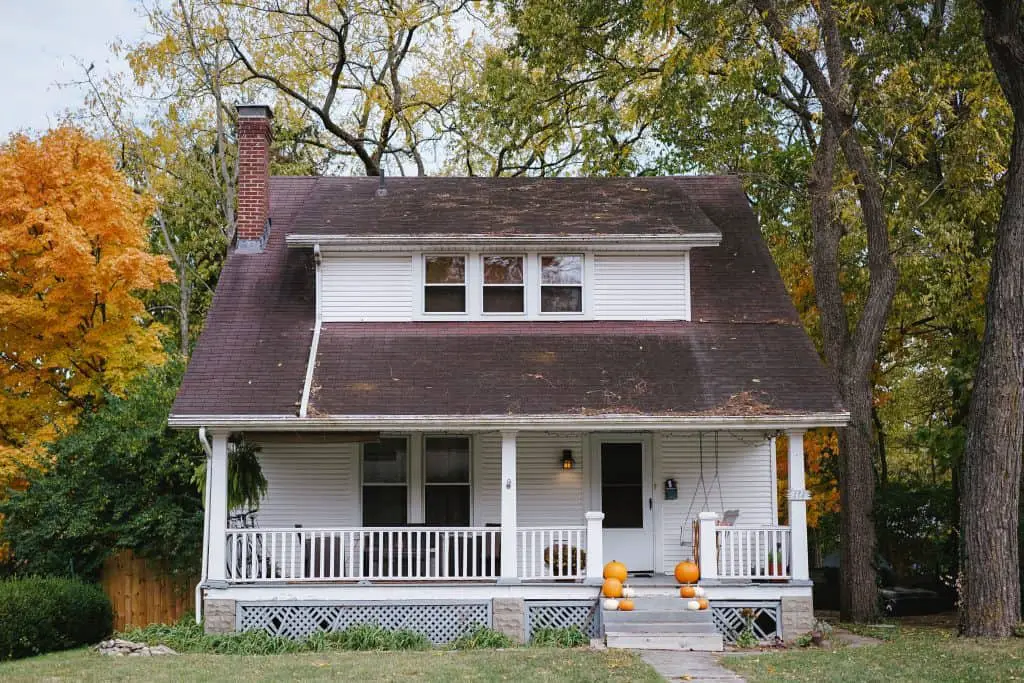Is Property Investing Ethical? 🏡💰 Unraveling the Real Estate Morality Maze!
Hello, dear reader! 🎩 Let’s dive into the million-dollar question, Is Property Investing Ethical? 🤔💸
Is Property Investing Ethical? Well, that’s like asking if a cat video is adorable. 🐱 The answer is it depends on who you ask! Some say it’s a noble endeavour, while others think it’s as ethical as stealing candy from a baby. 🍬
Property investing can be ethical if done responsibly, considering the community’s welfare and fair treatment of tenants. It’s like being a superhero landlord! 🦸

The Concept of Property Investing
Property investing is like playing Monopoly in real life. 🎲 You buy properties, charge rent, and try not to go bankrupt. But there’s more to it:
- Real estate: Buying land or buildings 🏘️
- Residential Properties: This includes houses, apartments, townhouses, and other dwellings. You can rent them out or sell them for a profit. It’s like being the king or queen of your own castle! 🏰
- Commercial Properties: Think office buildings, retail stores, and warehouses. It’s like owning the market square where all the townsfolk gather! 🛒
- Industrial Properties: These are the big boys – factories, manufacturing plants, etc. It’s like owning the blacksmith’s forge and the mill! ⚙️
- REITs: Like stocks, but for properties 📈
- What are they?: REITs or Real Estate Investment Trusts are companies that own or finance income-producing real estate across a range of property sectors. It’s like pooling your gold with other lords and ladies to build an empire! 🏦
- Types of REITs: There are Equity REITs (owning properties), Mortgage REITs (dealing in property mortgages), and Hybrid REITs (a mix of the two). Choose your adventure! 🗺️
- Benefits: They’re a way to invest in real estate without having to buy property. Plus, they often pay dividends! It’s like having a goose that lays golden eggs! 🥚💰
- Flipping: Buying, fixing, and selling properties for profit 🔨
- The Process: Buy a fixer-upper, roll up your sleeves, renovate it, and then sell it for a profit. It’s like finding a rusty old sword and turning it into Excalibur! 🗡️✨
- The Risks: Market fluctuations, unexpected renovation costs, and the potential for not selling at a high enough price. It’s an adventure fraught with dragons! 🐉
- The Rewards: If done right, you can make a substantial profit in a relatively short amount of time. It’s like finding a treasure chest at the end of a quest! 🏆💎
So, put on your adventurer’s hat and get ready to conquer the world of property investing! 🌍💪 Remember, with great power comes great responsibility. Use your powers for good! 🦸♂️💖
The Ethical Dimension of Property Investing
Imagine being a landlord. You’re like the king or queen of your little kingdom. 👑 But with great power comes great responsibility. The ethical dimension involves:
- Landlord/tenant relationship: Treat your subjects (tenants) fairly! 👨👩👧👦
- Fair Treatment: As a landlord, it’s essential to treat tenants with respect and dignity. Think of them as the loyal subjects of your kingdom, deserving of a just ruler! ⚖️
- Prompt Response to Issues: If a tenant has a leaky roof, don’t let them swim in their living room! Be the hero who fixes problems swiftly. 🛠️💦
- Transparent Communication: Keep the lines of communication open. It’s like sending carrier pigeons to keep everyone informed! 🐦✉️
- Impact on housing prices: Don’t be the evil villain causing a housing crisis! 🏠💥
- Avoid Artificial Inflation: Don’t be that sneaky sorcerer who uses dark magic to manipulate housing prices. Keep it fair and square! 🧙♂️❌
- Consider Affordability: Remember that your kingdom thrives when everyone can afford a cozy hobbit hole or a grand castle. 🏡💕
- Community Impact: Be mindful of how your investments affect the community. A thriving kingdom is better than a ghost town! 👻🏘️
- Role of capital: Use your treasure chest wisely! 💰
- Invest Responsibly: Don’t throw your gold coins around like confetti. Make investments that benefit both you and your kingdom. 🎊💰
- Sustainable Practices: Consider investing in eco-friendly properties or making green upgrades. It’s like planting magical trees that protect the land! 🌳✨
- Long-term Vision: Think of your treasure chest as a magic cauldron. What you put in now will brew into something powerful in the future! 🍲🔮
So, as the ruler of your property kingdom, wield your scepter with wisdom and grace. May your kingdom flourish under your just and ethical rule! 🌟👑
The Positive Side of Property Investing
Let’s put on our rose-colored glasses! 🌹👓 Property investing can be like being a fairy godmother:
- Providing housing: Bibbidi-Bobbidi-Boo! You’ve got a roof over your head! 🏰
- Meeting Basic Needs: By providing housing, you’re fulfilling one of humanity’s basic needs. It’s like waving a magic wand and giving Cinderella a safe place to sleep! 🧚♀️💤
- Quality of Life: A comfortable home can greatly improve a person’s quality of life. It’s like turning a pumpkin into a carriage – suddenly, the world is full of possibilities! 🎃➡️🚗
- Stability: Long-term housing provides stability, which is essential for families and individuals. It’s like giving them a pair of glass slippers that never break! 👡👑
- Catering to market demands: If the shoe fits, the market sits! 👠
- Supply and Demand: By investing in properties where there is a demand, you help to stabilize the market. It’s like making sure there are enough glass slippers for every Cinderella in the kingdom! 👸🥿
- Diverse Options: Offering diverse housing options caters to different needs and budgets. From cozy cottages to luxurious castles, there’s something for everyone! 🏡🏰
- Innovation: Staying in tune with market demands means embracing innovation. It’s like upgrading Cinderella’s carriage with the latest magic spells! 🌟🔮
- Community benefits: Sprinkling a little magic in the neighbourhood! ✨
- Economic Growth: Property investments can stimulate the local economy. It’s like your fairy dust is making the local market thrive! 🧚♂️💸
- Job Creation: From construction to property management, investing in real estate creates jobs. It’s like summoning a helpful team of woodland creatures! 🐦🐰🔨
- Neighbourhood Revitalization: Strategic investments can breathe new life into a neighbourhood. It’s like using your magic wand to turn a gloomy forest into an enchanted wonderland! 🌳🌈
So, as you flutter around with your fairy wings, remember that your property investments have the power to sprinkle magic and transform lives. Use this power wisely, dear fairy godmother or godfather! 🧚♀️💖🏘️

The Negative Side of Property Investing
Now, let’s get real. Sometimes property investing can be like a Disney villain “I hate property investors!!!”
- Inflating housing prices: Like hoarding all the magic potions! 🧪
- Creating Bubbles: When investors drive up housing prices, it can create a bubble. And we all know what happens to bubbles – they pop! 💥 It’s like when the villain’s magic potion backfires! 🧙♂️💥
- Locking Out First-Time Buyers: Sky-high prices can make it impossible for first-time buyers to enter the market. It’s like the villain putting a magical barrier around the castle, and the prince can’t get in to save the day! 🏰🚫
- Increasing Rent: As property prices go up, so does rent. It’s like the villain taking away the townsfolk’s magic beans – how will they grow their beanstalks now? 🌱💔
- Exploiting tenants: Being the evil stepmother, nobody asked for! 👿
- Unfair Evictions: Kicking tenants out without a fair reason or proper notice is downright villainous. It’s like banishing Cinderella to the attic for no reason! 🏰👋
- Neglecting Maintenance: Failing to keep the property in good shape is like the evil stepmother who never cleans the castle. Who wants to live in a dungeon? 🕸️🐀
- Overcharging and Hidden Fees: Charging tenants excessive fees is like the villain demanding all the gold in the kingdom. Save some for the dragon’s hoard! 🐉💰
So, while property investing can be a magical adventure, it’s important not to turn to the dark side. Be the hero of your story, not the villain plotting in the shadows! 🦸♀️💙🏡
Ethical Real Estate Alternatives
Like choosing between a red apple and a green one, there are alternatives! 🍎🍏
- Community-focused real estate: Like building a castle for the whole village! 🏰
- Affordable Housing Projects: Investing in affordable housing is like being the benevolent ruler who ensures everyone in the kingdom has a cozy abode. It’s like building a castle with rooms for all! 🏰👨👩👧👦
- Community Development: Engaging in projects that benefit the community, such as parks, schools, and healthcare facilities, is like planting an enchanted forest for everyone to enjoy. 🌳🏞️
- Supporting Local Businesses: Investing in spaces for local businesses is like setting up a magical market where the townsfolk can trade their wares. 🛍️🌟
- Ethical funds: Investing in magic beans that grow into homes! 🌱
- Socially Responsible Investing (SRI): This involves investing in companies that meet certain ethical standards. It’s like choosing magic beans that grow into beanstalks of goodness! 🌱✨
- Environmental, Social, and Governance (ESG) Funds: These funds consider the environmental and social impact of investments. It’s like planting seeds that grow into a garden of harmony for the kingdom! 🌺🕊️
- Impact Investing: This is about making investments with the intention of generating positive social or environmental effects. It’s like using your magic to heal the land and bring prosperity to the realm! 🌈🌟
Remember, as an investor, you have the power to wield your treasure for good. Choose the green apples of ethical investing and create a bountiful harvest for all! 🍏💚🏡
The Role of Legal and Moral Duties
As a property investor, you’re like a knight in shining armor. 🛡️ You have to:
- Uphold legal responsibilities: Like saving the princess (or prince) from the tower! 🏰
- Compliance with Laws: As a property investor, adhering to real estate laws and regulations is a must. It’s like knowing the ancient scrolls that guide the kingdom! 📜⚖️
- Tenant Rights: Respecting and protecting the rights of your tenants is akin to saving the distressed damsel or dashing prince. Be the hero they deserve! 🦸♂️❤️
- Health and Safety: Ensuring that your properties meet health and safety standards is like keeping the dragons and trolls at bay. Protect the realm! 🐉🛡️
- Fulfil moral duties: Like sharing your royal feast with the townsfolk! 🍗
- Fair Treatment: Treating tenants and business partners with fairness and integrity is like being the noble knight who fights for justice. Chivalry is not dead! ⚔️🏅
- Community Contribution: Contributing positively to the community, whether through charity or development, is like hosting a grand feast for the entire kingdom. Share the bounty! 🍖🎉
- Environmental Stewardship: Taking care of the environment by adopting sustainable practices is like being the guardian of the enchanted forest. Nurture the magic! 🌳✨
So, ride forth as the valiant property investor who upholds both legal and moral duties for the good of the community! 🏰🌟🛡️
Case Studies and Examples
Let’s take a journey through some potential-life examples:
- The Good: Sir Invest-a-lot, who built affordable housing for the community
- Background: Sir Invest-a-lot, a real-life property investor, recognized the need for affordable housing in a growing urban area.
- Action: He invested in several properties and worked with local authorities to ensure that they were affordable for low-income families.
- Impact: His investments provided homes for those who needed them and helped revitalize the neighbourhood. The community saw decreased homelessness, and the residents had a higher quality of life.
- The Bad: Lady Greedypockets, who raised rents and evicted tenants
- Background: Lady Greedypockets, another property investor, purchased several apartment buildings in a densely populated city.
- Action: Instead of maintaining the properties, she significantly raised the rents to an unaffordable level. When tenants couldn’t pay, she evicted them without notice.
- Impact: This led to a sharp increase in homelessness and a decrease in the quality of life for many families. The community was negatively impacted, and Lady Greedypockets faced legal consequences for her actions.
These case studies exemplify how property investing can positively and negatively impact communities. Investors must consider the ethical implications of their actions and strive to contribute positively to society.
Table: The Good, The Bad, and The Ugly of Property Investing 📊
| Aspect | The Good 😇 | The Bad 😈 | The Ugly 🤢 |
| Impact on Community | Positive, if done right | Can cause gentrification | Displacement of residents |
| Financial Returns | Can be lucrative 💰 | Market risks | Losses and debt |
| Personal Involvement | Can be hands-off | Time-consuming | Stressful management |
FAQs 🤔ethical property investing
Is it ethical to invest in real estate?
The ethics of investing in real estate can be subjective and depend on various factors. Here are some considerations that can help determine whether investing in real estate is ethical:
Intention and Impact: If the intention behind the investment is to provide quality housing without exploiting tenants, and it has a positive impact on the community, it can be considered ethical.
Fair Pricing: Charging reasonable prices that are in line with market rates and not engaging in price gouging, especially during housing shortages or crises, is an ethical practice.
Property Maintenance: Ensuring that the properties are well-maintained and meet health and safety standards is an ethical responsibility of the investor.
Legal Compliance: Adhering to all legal regulations and respecting tenants’ rights is crucial in ethical real estate investing.
Community Development: If the investment contributes to the economic development of the community, such as creating jobs or improving neighborhoods, it can be seen as ethical.
Environmental Considerations: Making environmentally conscious decisions, such as investing in sustainable buildings or making eco-friendly upgrades, can also be a part of ethical real estate investing.
Transparency and Honesty: Being transparent and honest with tenants and stakeholders involved in the investment is an ethical practice.
In conclusion, real estate investing can be ethical if it is done with consideration for the well-being of tenants, the community, and the environment, and with adherence to legal standards. However, if it is done solely for profit at the expense of these factors, it can be considered unethical.
What is one major problem with investing in real estate?
One major problem with investing in real estate is the high upfront costs and capital required to purchase properties.
What are the five negatives of real estate investment?
High entry cost 🏦
Maintenance woes 🛠️
Bad tenants 😈
Market fluctuations 📉
Legal issues ⚖️
Is real estate an aggressive investment?
Real estate is a relatively less aggressive investment than stocks or cryptocurrencies. It’s often seen as a more stable and tangible asset.
However, specific real estate investment strategies, such as flipping houses or investing in areas with rapid growth, can be more aggressive due to higher risks and potential for higher returns.
The aggressiveness of a real estate investment can vary based on the strategy and market conditions.
Is house flipping ethical?
House flipping can be ethical or unethical, depending on the practices and intentions involved. Here are some considerations:
Ethical Aspects of House Flipping:
Improving Neighborhoods: If house flipping involves renovating dilapidated properties and improving neighbourhoods, it can positively impact the community.
Providing Quality Housing: Ensuring that the renovated homes meet high quality and safety standards can make house flipping an ethical practice.
Unethical Aspects of House Flipping:
Cutting Corners: If a flipper uses substandard materials or cuts corners in renovations just to make a quick profit, this can be considered unethical.
Artificial Price Inflation: Rapidly flipping houses with the sole intention of driving up prices in a neighbourhood without adding real value can contribute to housing bubbles and is generally seen as unethical.
Exploiting Buyers: If a house flipper misrepresents the condition of a property or engages in deceptive marketing practices, this is unethical.
In conclusion, house flipping can be ethical if done responsibly to add value and improve housing quality. However, it can be considered unethical if it’s done solely for profit without regard for quality, safety, or the impact on the community.
Is real estate investing evil?
Real estate investing is not inherently evil. It can have positive impacts, such as providing housing and contributing to community development. However, if done irresponsibly, such as exploiting tenants or causing gentrification, it can have negative effects. The ethics of real estate investing depend on the intentions and practices of the investor.
What are the main ethical issues in real estate?
The main ethical issues in real estate include:
Exploitation of Tenants: Some investors may exploit tenants by charging excessive rents or neglecting maintenance when investing in property.
Discrimination and Fair Housing: The ethics of owning rental property include ensuring no discrimination in renting or selling properties based on race, gender, or other protected characteristics.
Transparency and Disclosure: Investors and agents must be transparent and disclose all relevant information about a property, including any defects or issues.
Environmental Sustainability: Real estate investors should consider the environmental impact of their properties and strive for sustainability.
Gentrification and Community Displacement: Investing in property in certain areas can lead to gentrification, where long-term residents are priced out of their neighbourhoods.
Conflict of Interest: Real estate professionals must avoid conflicts that could compromise their obligations to clients or the community.
Responsible Financing: Investors should use responsible financing practices to avoid contributing to housing bubbles or predatory lending.
Legal Compliance: Ensuring compliance with all legal regulations and respecting tenants’ rights is a fundamental ethical obligation in real estate.
In summary, the ethics of owning rental property and investing in property encompass a wide range of considerations, from fair treatment of tenants to environmental sustainability and legal compliance.
Conclusion: Is real estate investing ethical?
So, Is Property Investing Ethical? It’s like a choose-your-own-adventure book. 📖
You can be the hero or the villain. The choice is yours! 🦸♂️
As we’ve seen through the tales of Sir Invest-a-lot and Lady Greedypockets, property investing can be a force for good or a path to notoriety. Like a knight setting out on a quest, you must arm yourself with knowledge, integrity, and a sense of responsibility. 🛡️
Consider the impact of your investments on the community. Are you building castles or dungeons? Are you a protector of the realm or a marauder? The pages of your story are still being written, and you hold the quill. 🖋️
But remember, even the greatest heroes have mentors and allies. Surround yourself with wise counsel. Seek the wisdom of those who have journeyed before you. Engage with experts who can guide you through the treacherous waters of property investing. 🧭
And so, noble investor, consider financial coaching as your trusty squire in this grand adventure. With the right guidance, you can make decisions that build your treasure chest and make the kingdom a better place for all. 🏰💰
Your financially happy future awaits, and the road ahead is paved with opportunities to be the hero in your property investing saga. 🌟
Get started today! Embark on your quest with honour, wisdom, and a heart for adventure. 🌈🏔️
Additional Resources 📚
For those who want to dive deeper into the enchanted forest of property investing:
- Books:
- “The Complete Guide to Property Investment: How to survive & thrive in the new world of buy-to-let by Rob Dent 📗
- Podcasts:
- “The Property Podcast” 🎧
- “Ethical Investment Show” 🎙️
Happy investing, and may your property kingdom thrive! 🏰💖
Need a Helping Hand with Your Finances? 🤝💰
If you’ve made it this far, congratulations! You’re already taking steps towards a healthier financial future. But maybe you’re feeling a bit overwhelmed. Maybe the thought of budgeting, saving, and investing still makes you break out in a cold sweat. Don’t worry, you’re not alone, and help is available.
At Financially Happy Money Coaching, I understand that money isn’t just about numbers. It’s about emotions, behaviours, and life choices. That’s why we’re here to help you take the stress out of money and build wealth in a way that aligns with your values and lifestyle.
Whether you’re just starting out on your financial journey or you’re looking to take your finances to the next level, we’re here to guide you every step of the way. I’ll help you understand your financial behaviours, set realistic goals, and create a personalized plan to achieve those goals.
So, why wait? Start your journey towards financial happiness today. Remember, the best time to start was yesterday. The second best time is now.
Click here to schedule your consultation and let’s make your money work for you, not vice versa. 💪💰
Remember, financial freedom isn’t a destination; it’s a journey. And every journey is easier when you have a guide. So, let’s embark on this journey together and create a financially happy future. 🚀💸







